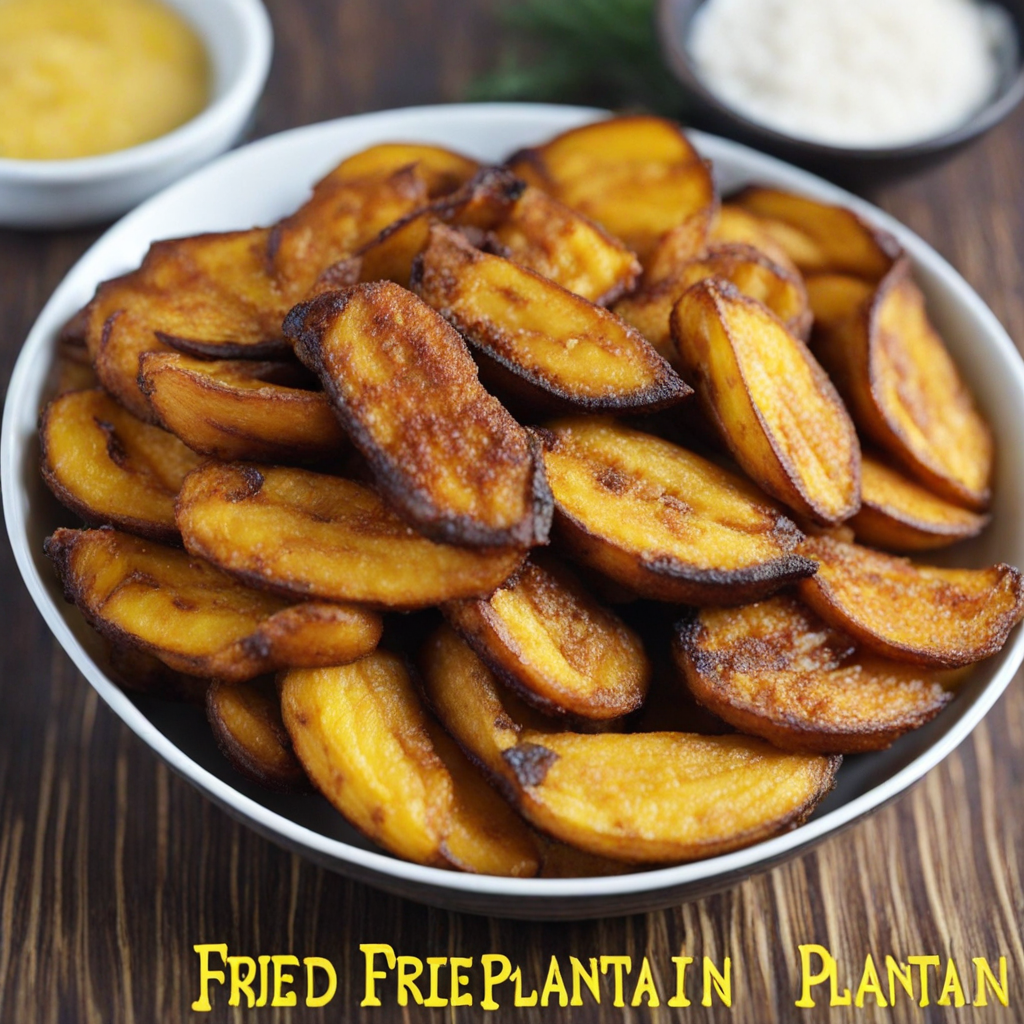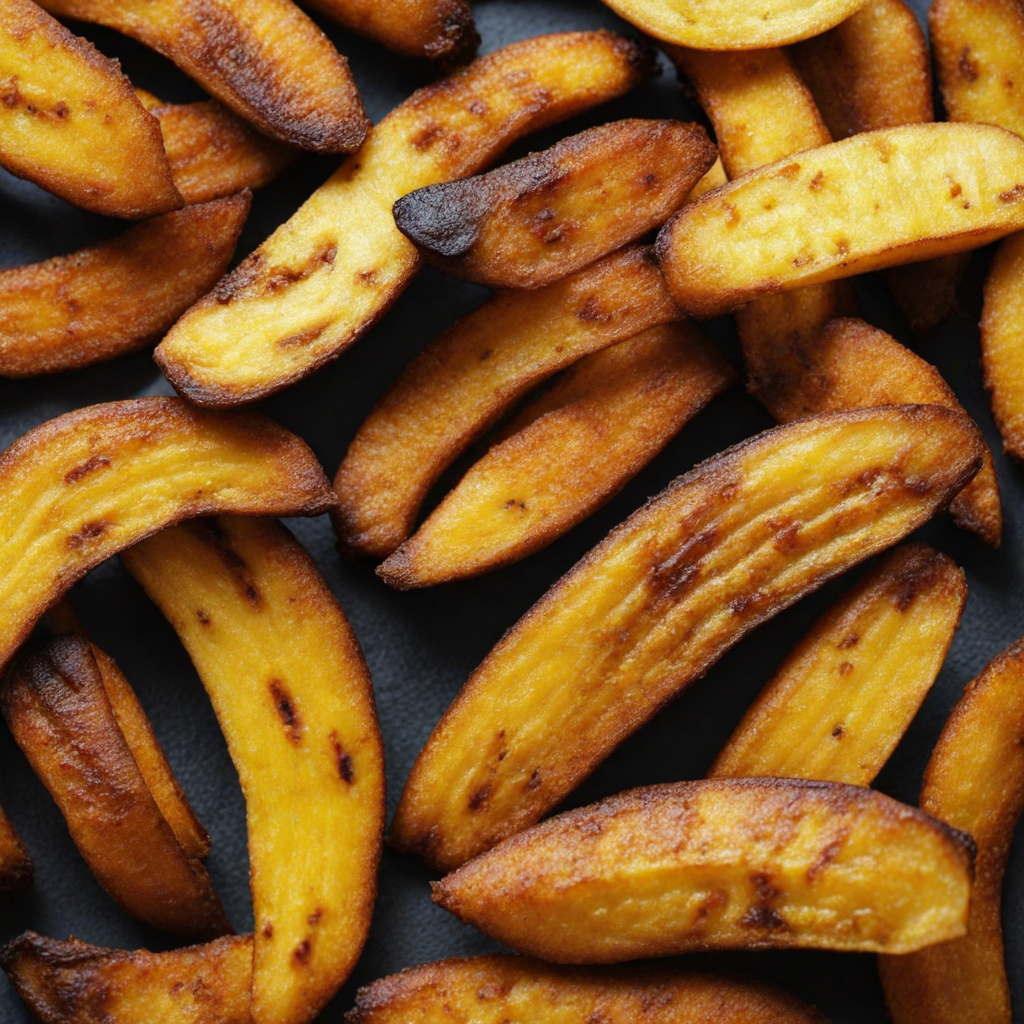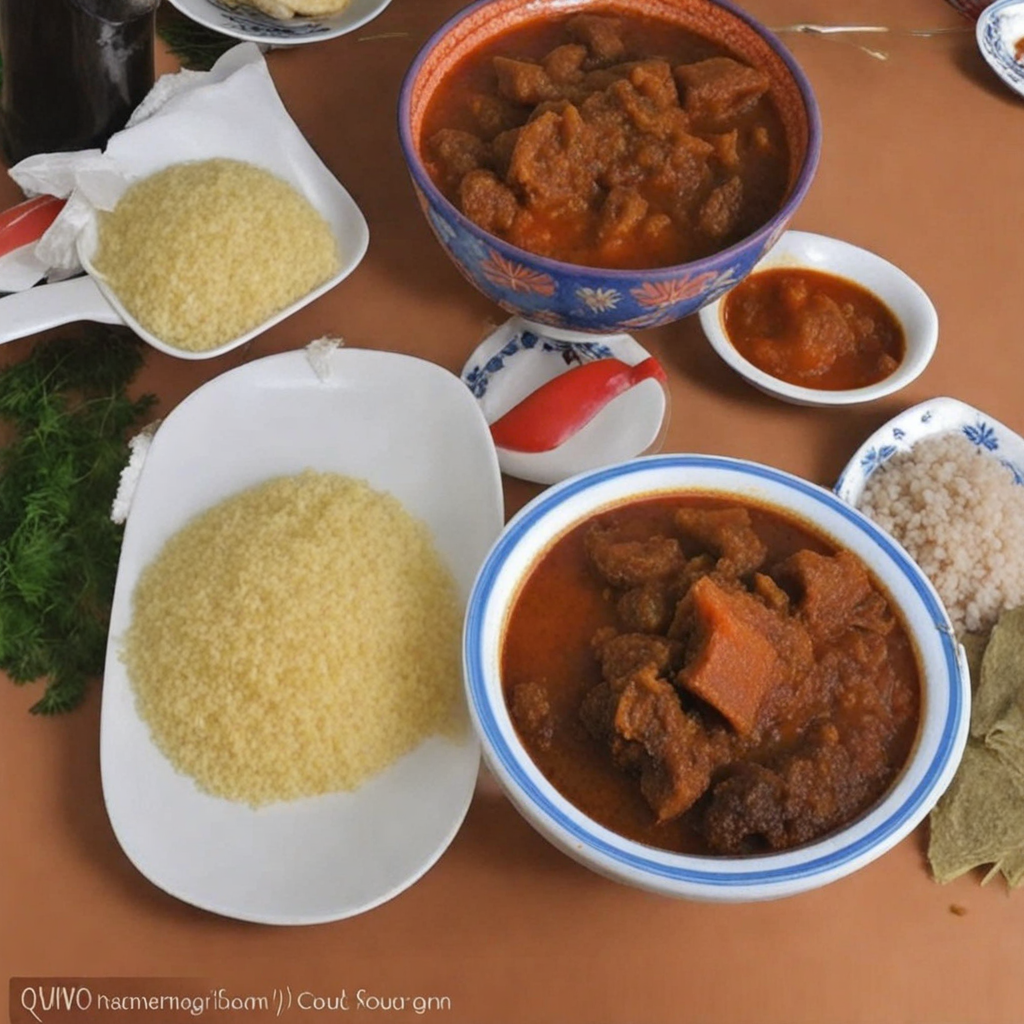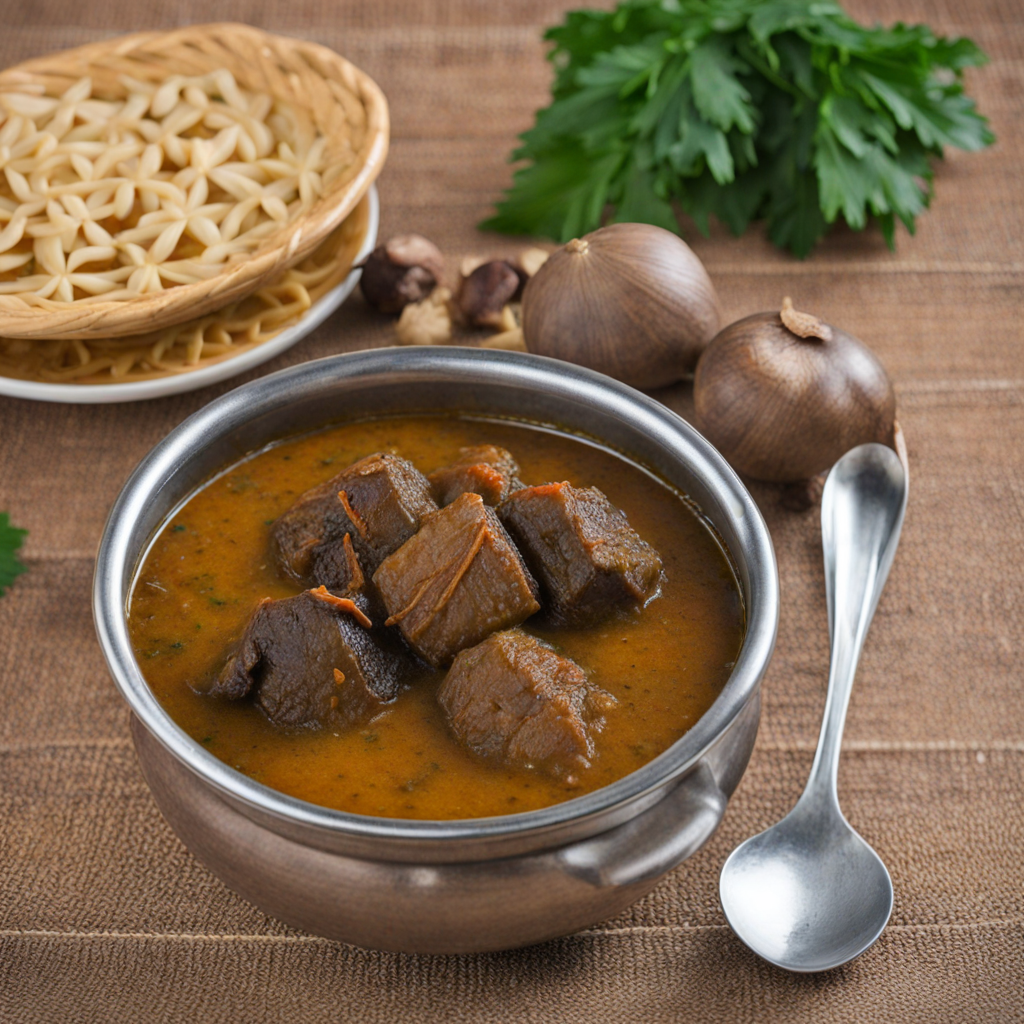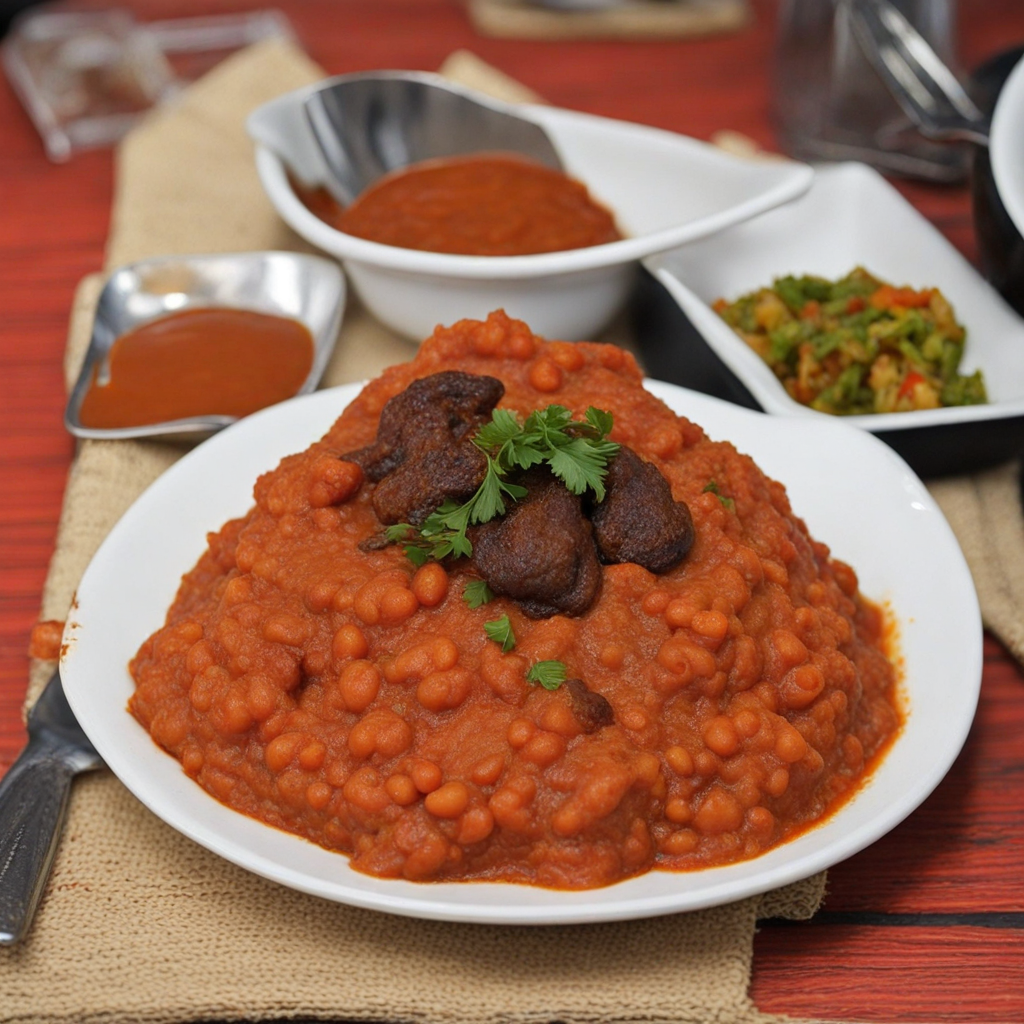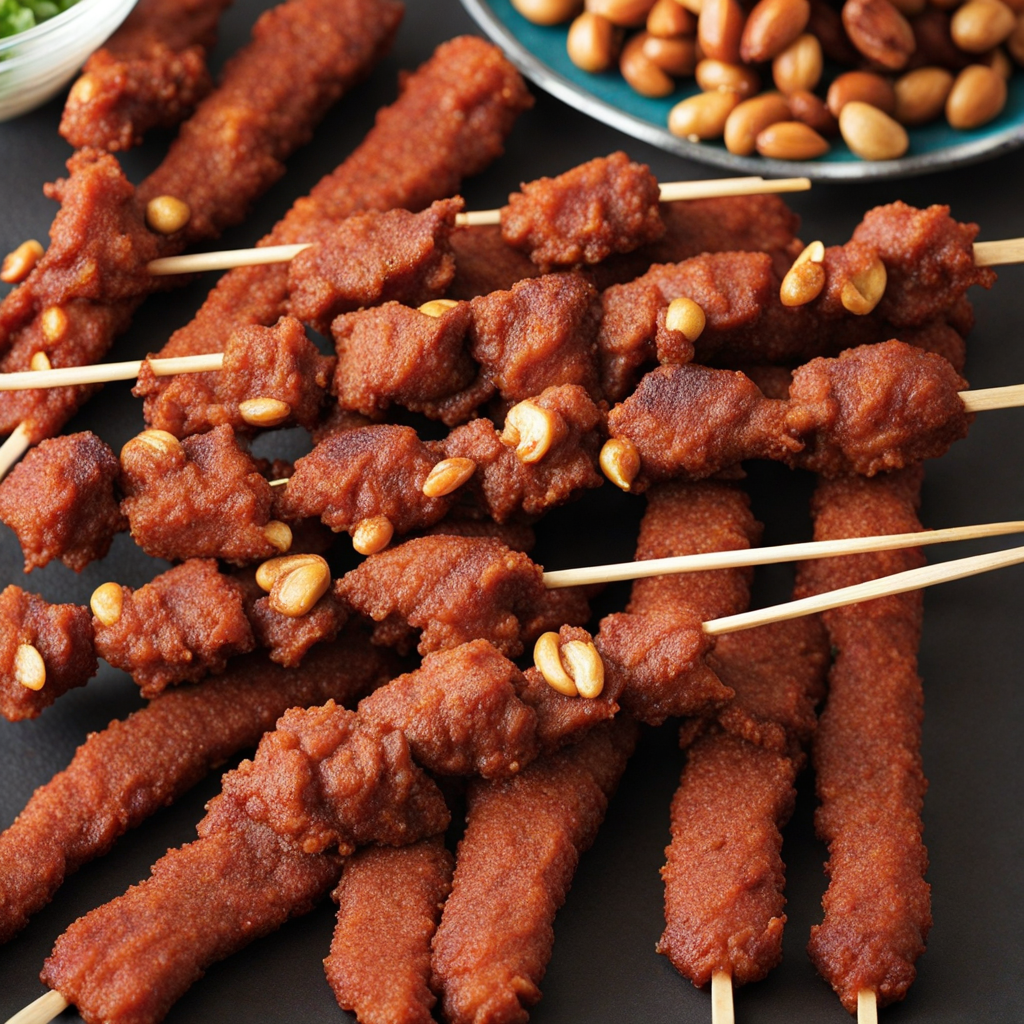Fried Plantain
Fried plantain, a beloved dish in Nigeria, showcases the versatility of this tropical fruit. The process begins with ripe plantains, which are slightly sweeter and softer than their green counterparts. Sliced diagonally, they take on a beautiful golden hue when fried, creating a delightful contrast with their creamy interior. The outer layer becomes crisp and caramelized, providing a satisfying crunch that complements the rich, buttery texture within. This simple yet flavorful preparation elevates the plantain, making it an irresistible treat that can be enjoyed on its own or as a side dish. The taste of fried plantain is a harmonious blend of sweetness and subtle savory notes. Each bite offers a unique experience, with the outer layer providing a slight crunch, while the inside melts in your mouth. Many Nigerians enjoy it as a savory snack or a side to various meals, often pairing it with spicy stews, grilled meats, or beans. The dish can also be served with a sprinkle of salt or a dash of hot pepper sauce, enhancing its flavor profile and catering to those who enjoy a little heat. The versatility of fried plantain makes it an ideal accompaniment for almost any meal, from breakfast to dinner. Fried plantain is not just a dish; it is a cultural experience. It is often served at gatherings, celebrations, and everyday meals, embodying the warmth and hospitality of Nigerian cuisine. The aroma of sizzling plantains fills the air, drawing people together and creating a sense of community. Whether enjoyed at street food stalls, in homes, or upscale restaurants, fried plantain remains a staple that highlights the rich culinary heritage of Nigeria. Its delightful taste and texture invite anyone to indulge in this simple yet extraordinary dish, making it a must-try for anyone looking to explore new flavors.
How It Became This Dish
The History and Cultural Significance of Fried Plantain in Nigeria #### Origins of Plantains Plantains, a staple in many tropical and subtropical regions, are believed to have originated in Southeast Asia and were domesticated approximately 5000 years ago. Over centuries, they spread across Africa, the Caribbean, and Latin America through trade and migration. In Nigeria, plantains became an integral part of the culinary fabric, flourishing in the country’s rich agricultural landscape. The plantain (Musa paradisiaca) is closely related to the banana, but unlike its sweeter counterpart, it is starchy and typically cooked before consumption. #### Plantains in Nigerian Cuisine In Nigeria, plantains hold a special place in the diet and are celebrated for their versatility. Fried plantains, known locally as "dodo," are among the most popular preparations. The dish showcases the plantain’s ability to absorb flavors and adapt to various cooking styles, making it a beloved accompaniment to numerous meals. Dodo can be found served alongside jollof rice, beans, or stews, adding a delightful sweetness and texture that complements the savory elements of these dishes. The method of frying plantains has its roots in the culinary traditions of various Nigerian ethnic groups, including the Yoruba, Igbo, and Hausa. Each culture has its unique twist on the dish, reflecting local tastes and ingredients. Among the Yoruba, for instance, dodo is often served during celebrations, social gatherings, and religious ceremonies, symbolizing abundance and hospitality. #### Cultural Significance Fried plantain transcends mere sustenance in Nigeria; it embodies the spirit of communal eating and celebration. In many Nigerian households, dodo is a staple dish, often prepared for breakfast, lunch, or dinner. Its presence at festive occasions, such as weddings and birthdays, signifies joy and togetherness. The act of sharing food, particularly fried plantains, fosters a sense of community, as families and friends gather around the table to enjoy a meal together. Moreover, dodo holds a nostalgic value for many Nigerians. For those who grew up in Nigeria, the aroma of fried plantain wafting through the kitchen often evokes memories of family gatherings and home-cooked meals. This dish serves as a reminder of cultural heritage and the importance of food in forging connections between generations. #### The Evolution of Fried Plantain Historically, the preparation of fried plantains has evolved alongside Nigeria's changing social and economic landscapes. During the pre-colonial era, plantains were primarily prepared at home, utilizing traditional cooking methods over open fires or in clay pots. As urbanization increased and lifestyles changed in the post-colonial period, the preparation of dodo began to adapt. The introduction of modern cooking appliances, such as gas stoves and frying pans, allowed for quicker, more efficient cooking. The globalization of food culture in the late 20th and early 21st centuries has further transformed the perception of fried plantain. With the rise of the Nigerian diaspora, particularly in the United States and the United Kingdom, dodo has gained international recognition. Nigerian restaurants and food trucks have popularized the dish outside of Nigeria, introducing it to a wider audience. Culinary fusion has also emerged, with chefs experimenting by incorporating plantains into various global cuisines, creating dishes like plantain tacos or fried plantain sandwiches. Social media has played a significant role in the resurgence of interest in traditional Nigerian foods, including fried plantain. Food bloggers and influencers showcase recipes and cooking techniques, sparking a renewed appreciation for dodo among younger generations. This digital renaissance has encouraged many to reconnect with their culinary roots, sharing family recipes and elevating fried plantain to a status of culinary pride. #### Nutritional Value and Culinary Techniques Fried plantains are not just a delicious treat; they also offer nutritional benefits. Rich in carbohydrates, vitamins (such as vitamin A and C), and minerals (including potassium), plantains serve as a nutritious source of energy. When fried, plantains develop a crispy exterior while maintaining a soft and sweet interior, creating a satisfying contrast in texture. The preparation of fried plantains can vary, but the most common method involves slicing the plantains diagonally or into rounds, then frying them in vegetable oil until golden brown. Some cooks choose to season the plantain slices with salt, while others may opt for a sprinkle of pepper or spices to add depth to the flavor. The choice of frying oil can also impact the taste; palm oil, for example, lends a distinctive richness that many Nigerians favor. #### The Future of Fried Plantain As Nigeria continues to evolve, so too does the role of fried plantain in its culinary landscape. As the global appetite for diverse cuisines grows, the potential for innovation within traditional dishes like dodo is boundless. Chefs are experimenting with plantains in novel ways, such as using them in desserts, smoothies, or even as a base for gluten-free pizzas. Moreover, sustainability is becoming increasingly important in the global food landscape. As awareness grows around the environmental impact of food production, there is a renewed focus on promoting local ingredients. Plantains, being a hardy crop that thrives in Nigeria's climate, offer an opportunity for sustainable agricultural practices. This not only supports local farmers but also strengthens the connection between food and culture. #### Conclusion Fried plantain, or dodo, is more than just a dish in Nigeria; it is a symbol of cultural identity, community, and culinary heritage. From its origins in Southeast Asia to its beloved status in Nigerian cuisine, fried plantains reflect the rich tapestry of history, tradition, and innovation. As the world continues to embrace diverse culinary experiences, dodo will undoubtedly remain a cherished staple, bridging generations and cultures through the simple act of sharing food. Whether enjoyed at a festive gathering or as a comforting home-cooked meal, fried plantain holds a special place in the hearts and palates of many, ensuring its legacy will endure for years to come.
You may like
Discover local flavors from Nigeria


